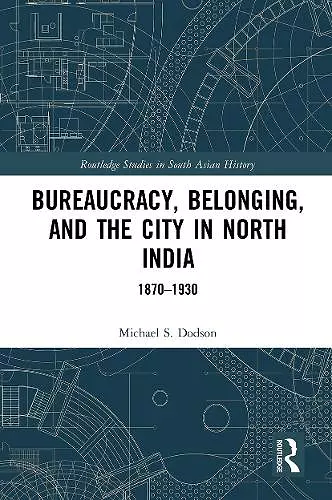Bureaucracy, Belonging, and the City in North India
1870-1930
Format:Paperback
Publisher:Taylor & Francis Ltd
Published:29th Aug '22
Currently unavailable, and unfortunately no date known when it will be back
This paperback is available in another edition too:
- Hardback£139.50was £155.00(9780367818906)

This book is a re-evaluation of modern urbanism and architecture and a history of urbanism, architecture, and local identity in colonial north India at the turn of the twentieth century.
Focusing on Banaras and Jaunpur, two of northern India’s most traditional cities, the book examines the workings of colonial bureaucracy in the cities and argues that interactions with the colonial state were an integral aspect of the ways that Indians created a sense of their own personal investment in the city in which they lived. The book explores the every-day and the mundane to better understand the limits of British colonial power, and the role of Indians themselves, in the making of the modern city. Based on highly localized archival source material, the author analyses two key aspects of city-making in this era: the building of new infrastructure, such as water supply and sewerage, and new policies governing historical architectural conservation. The book also incorporates an ethnography of contemporary urban space in these cities to advocate for a more nuanced and responsible approach to writing the history of such cities and to address the myriad problems of present-day north Indian urbanism.
Containing examples of bureaucratic procedure and its contradictions and enlivened by a set of personal reflections and narratives of the author's own experiences, this book is a valuable addition to the field of South Asian Studies, Asian History and Asian Culture and Society, Colonial History and Urban History.
"Michael Dodson's book on colonial bureaucracy and north Indian urbanism looks at the way in which urban meaning was produced in colonial India through the ‘incipient citizenship’ of Indians involved in an unequal but transactional relationship with the state. Rather than focussing on this relationship as a hierarchy of command, obedience and resistance, he explores it through the lens of infrastructure in a highly original way. This innovative piece of research is unusual in matching a finely detailed account of colonial bureaucracy with a big argument about the global making of modernity."
Faisal Devji, Professor of Indian History, University of Oxford
ISBN: 9781032400136
Dimensions: unknown
Weight: 358g
246 pages